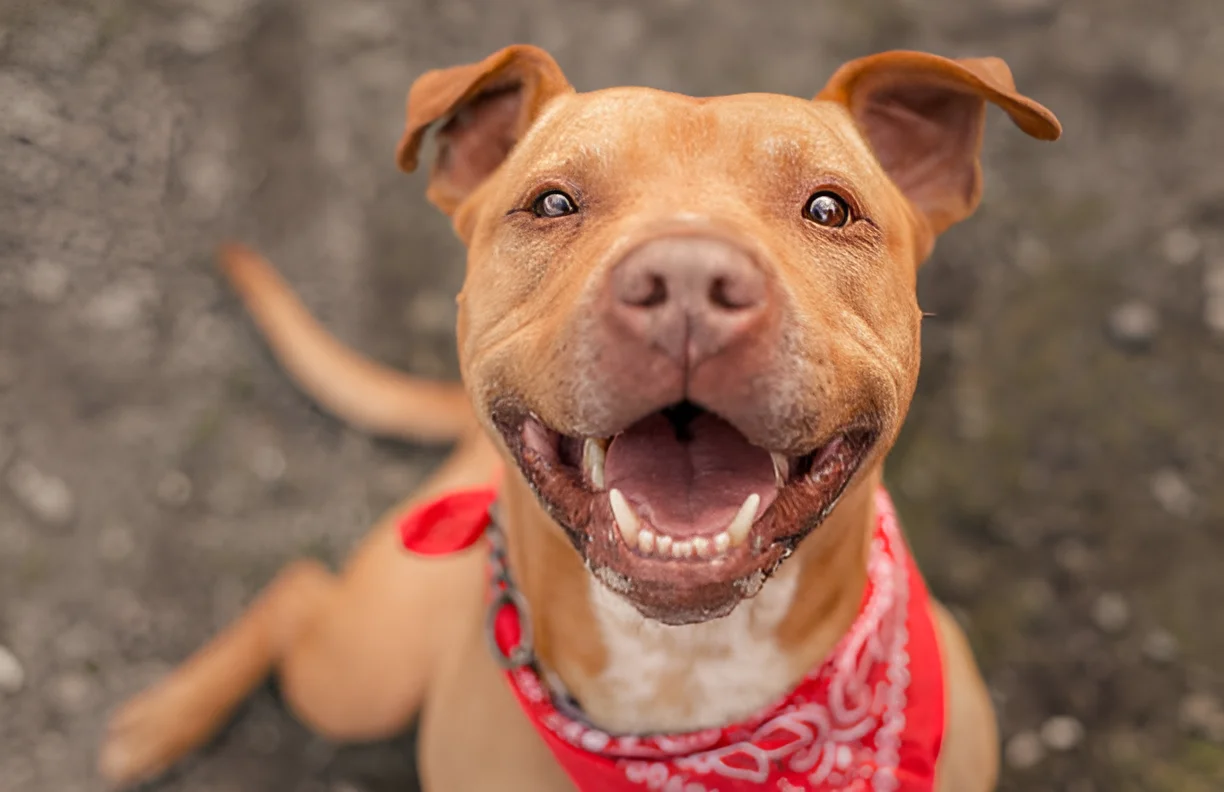Yes, pitbulls can be a friendly breed when properly trained and socialized. Understanding their temperament, history, and the factors that influence their behavior is crucial for appreciating these often misunderstood dogs.
Pitbulls are a group of breeds that have garnered a lot of attention, both positive and negative. Known for their strength and loyalty, they are often misunderstood and unfairly labeled as inherently aggressive. This comprehensive guide will explore the true nature of pitbulls, their history, temperament, and how to ensure they are friendly and well-behaved pets. Whether you’re considering adopting a pitbull or simply want to learn more about this breed, this article will provide valuable insights and practical tips.
Understanding the Pitbull Breed
The term “pitbull” is often used to describe several breeds, including the American Pit Bull Terrier, American Staffordshire Terrier, Staffordshire Bull Terrier, and American Bully. These breeds share common ancestry and physical characteristics but can vary in temperament and behavior.
Key Characteristics:
- Strength and Agility: Pitbulls are muscular and athletic, making them excellent working dogs.
- Loyalty and Affection: They are known for their loyalty and affectionate nature towards their families.
- Intelligence: Pitbulls are intelligent and eager to please, which makes them highly trainable.
The History of Pitbulls
Understanding the history of pitbulls helps explain some of their behaviors and characteristics. Originally bred in England for bull-baiting, a cruel sport where dogs were set upon bulls, pitbulls were later used for dog fighting. Despite this violent history, they were also known as “nanny dogs” due to their gentle nature with children.
Transition to Family Pets: Over time, pitbulls transitioned from fighting dogs to beloved family pets. Their loyalty, intelligence, and affectionate nature made them popular companions.
Temperament and Behavior
Pitbulls are often misunderstood due to their history and media portrayal. However, their temperament is largely influenced by their upbringing and environment.
Friendly and Affectionate: When properly trained and socialized, pitbulls can be incredibly friendly and loving. They form strong bonds with their families and are known for their affectionate nature.
Protective Instincts: Pitbulls have a natural protective instinct, which can be beneficial for families but requires proper training to ensure it does not lead to aggression.
Playful and Energetic: These dogs are playful and energetic, requiring regular exercise and mental stimulation to stay happy and healthy.
Training and Socialization
Proper training and socialization are crucial for ensuring that pitbulls are friendly and well-behaved.
Early Socialization: Introduce your pitbull to different environments, people, and other animals from a young age. This helps them become well-adjusted and reduces the likelihood of fear-based aggression.
Positive Reinforcement: Use positive reinforcement techniques, such as treats and praise, to encourage good behavior. Avoid harsh punishment, as it can lead to fear and aggression.
Consistency: Be consistent with your training methods and commands. Consistency helps your pitbull understand what is expected of them and reinforces good behavior.
Obedience Training: Enroll your pitbull in obedience classes to teach basic commands and improve their social skills. Obedience training also strengthens the bond between you and your dog.
Addressing Aggression
While pitbulls are not inherently aggressive, certain factors can contribute to aggressive behavior. Understanding and addressing these factors is essential for preventing aggression.
Environmental Factors: Aggression is often influenced by environmental factors such as neglect, abuse, or lack of socialization. Providing a loving and stable environment can prevent aggressive tendencies.
Health Issues: Pain or discomfort from health issues can lead to aggression. Regular veterinary check-ups are important to ensure your pitbull is healthy and free from pain.
Fear and Anxiety: Fear and anxiety can trigger aggressive behavior. Identifying and addressing the sources of fear and anxiety can help prevent aggression.
Professional Help: If your pitbull shows signs of aggression, seek help from a professional dog trainer or behaviorist. They can provide personalized strategies to address and manage aggressive behavior.
The Role of Responsible Ownership
Responsible ownership is key to ensuring that pitbulls are friendly and well-behaved. This includes providing proper care, training, and socialization.
Spaying and Neutering: Spaying or neutering your pitbull can reduce the risk of certain health issues and decrease aggressive behavior.
Regular Exercise: Provide regular exercise to keep your pitbull physically and mentally stimulated. This helps prevent boredom and destructive behavior.
Healthy Diet: Feed your pitbull a balanced diet to maintain their health and energy levels. Consult your veterinarian for dietary recommendations.
Veterinary Care: Schedule regular veterinary check-ups to monitor your pitbull’s health and address any issues promptly.
Conclusion
Yes, pitbulls can be a friendly breed when properly trained and socialized. Understanding their temperament, history, and the factors that influence their behavior is crucial for appreciating these often misunderstood dogs. By providing proper care, training, and socialization, you can ensure that your pitbull is a loving and well-behaved companion.
The photo featured below the post headline is Credit: Photography by Adri/istockphoto
I hope you find this post helpful and informative. If Yes’ feel free to share it with your friends!
Frequently Asked Questions
Are pitbulls a friendly breed?
Yes, pitbulls can be a friendly breed when properly trained and socialized.
What factors influence a pitbull’s behavior?
Factors include their upbringing, environment, training, socialization, and health.
How can I ensure my pitbull is friendly and well-behaved?
Provide early socialization, use positive reinforcement, be consistent with training, and ensure regular exercise and veterinary care.
Are pitbulls naturally aggressive?
No, pitbulls are not naturally aggressive. Aggression is often influenced by environmental factors and lack of proper training and socialization.
What should I do if my pitbull shows signs of aggression?
Seek help from a professional dog trainer or behaviorist to address and manage aggressive behavior.

